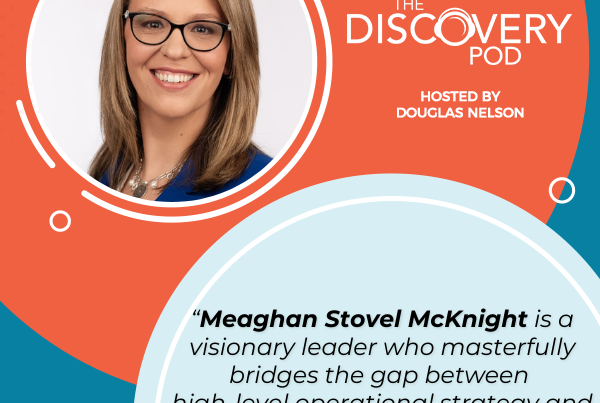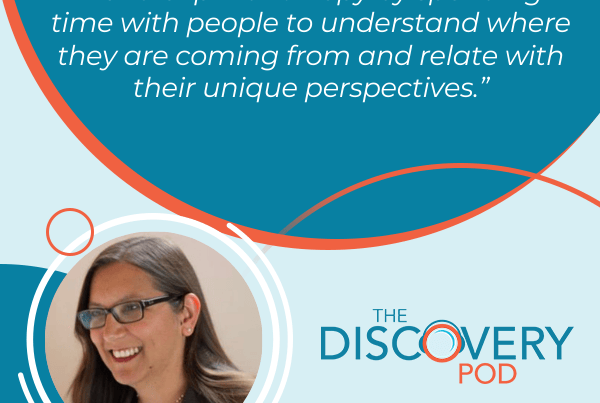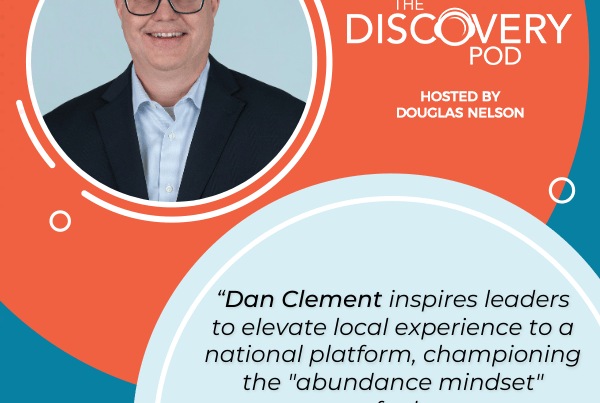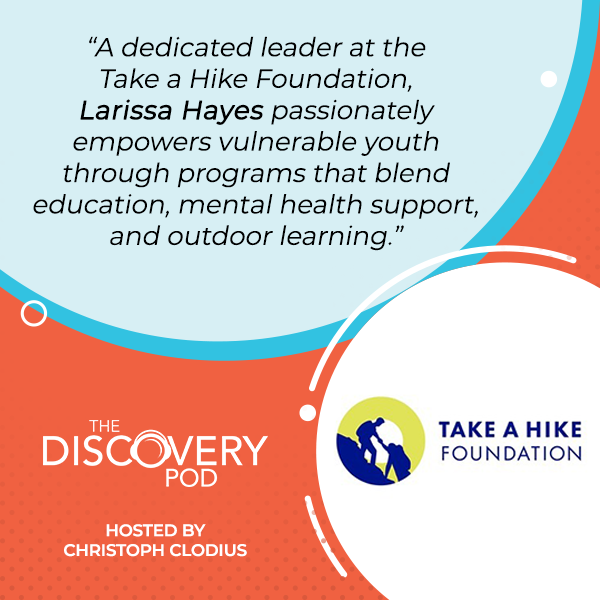
Breaking down barriers and building bridges, Take A Hike Foundation is a beacon of hope for vulnerable youth, offering a haven and the tools they need to thrive. In this episode, Christoph Clodius sits down with Larissa Hayes, the Senior Director of Development with Take A Hike Foundation. Larissa reveals how the initiative empowers vulnerable youth facing adverse childhood experiences by offering personalized support and integrating therapeutic sports with land-based learning. She also shares insights into the organization’s growth, fundraising strategies, and future goals. Larissa also highlights alumni stories that show how Take a Hike helps young people overcome challenges and achieve their dreams.
—
Listen to the podcast here
Take A Hike Foundation With Larissa Hayes, Senior Director Of Development
Take A Hike Foundation
I have the great pleasure of speaking with Larissa Hayes. She is the Senior Director of Development with Take a Hike Foundation. She and I are working together to help recruit a new Director of Philanthropy, Individual Giving. We’re going to spend a little bit of time talking about that. Welcome Larissa.
Thank you. I’m very excited to be here.
Excellent, as am I. Let’s dive right in. I want to start with a bit of context setting. For those people who may not be familiar with Take a Hike, tell me a little bit more about it.
For many young people, it’s hard to be a teenager. Youth is a time of relentless uncertainty, anxiety, and trepidation. This is very much amplified for vulnerable youth. These young people have already had some challenging life experiences. They may have experienced trauma or have a diagnosed mental health challenge. They’re facing barriers. It’s called Adverse Childhood Experiences.
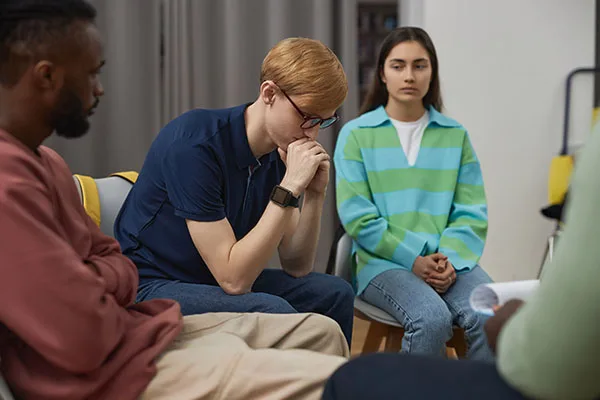
Take A Hike Foundation: For many young people, it’s hard to be a teenager. Youth is a time of relentless uncertainty, anxiety, and trepidation.
More than anything, they need a nurturing, stable, and safe environment. They can unlock their talents and develop the social-emotional skills that will serve them now and also as adults. Many of these kids do not have that at home and they do not have it at school. They take on some negative coping mechanisms isolating, like skipping, maybe substance use, and self-harm.
Our education system, especially one that was designed for the majority, leaves these young people behind. And this is where Take a Hike works. We are a full-time mental health and well-being program for youth experiencing vulnerabilities that are embedded in a high school alternative education classroom. We integrate into young people’s learning environment and intensive clinical therapeutic sports, critical to their mental health and well-being.
Along with that, we integrate land-based learning. This is the hike and take a hike, as well as community engagement. We work with school districts, they are our partners, and they provide high-quality education. Together, we are empowering these young people with the skills and resilience they need to not just graduate high school but build healthy relationships and achieve success in that.
That’s amazing. That’s such a multifaceted program. It involves many different steps, doesn’t it? I know we want to talk a little bit more. We could talk at length about all the programs and the wonderful work you’re doing there, but I think the key takeaways are the integration of the various programs, the outdoor learning, the community, and the school work. Fundamentally, one of the things I like about Take a Hike is meeting them where they are. Maybe you want to talk a little bit more about that, Larissa. Why and how do you tailor the programs to the individual and the community and support the staff working with kids and students daily?
Yes, in each program, there are the educators, and that’s our school district partner. We also have a mental health clinician and a landing learning specialist. When the youth join to take a hike, there is a very intentional and thorough conversation with both the youth and their guardians on where they are at that moment and what they might need to be successful.
We tailor all of their support to what they are currently experiencing, but also what their goals are and what they want to achieve with us. I think what’s very special about the Take a Hike program is that it is not only an intensive and in-depth word but also that the youth have the autonomy and agency to express their needs.
That’s great, and that’s a big part of independence, such as self-advocacy and so on. As a last point, I also wanted to share where you’re based because you’ve got many programs around the province. You reach many kids in such a diverse way. Maybe just tell us a little bit about the scale and scope of the work that you’re doing.
Yes, we have fifteen programs as of September 2024, and we’ll be opening an additional three. We’re on Vancouver Island in Nanaimo, Cowichan, and Saanich. We are in the Lower Mainland in Vancouver, Burnaby, West Vancouver, Delta, soon-to-be Mission in Coquitlam, and in the interior in Vernon, Central Okanagan, and the Kelowna space.
The West Kootenays is in Trail, Merritt, and then soon to be Penticton. We’ve grown very significantly. I joined the team about six years ago. We have something called Basecamp, which is essentially our head office and that’s located in Vancouver. Yet, we have staff who work in Basecamp across the province, as well as in Ontario.
I didn’t mean to test you there. I think you got all fifteen.
I did get them all. Don’t worry.
Personal Motivation
Honestly, I wasn’t tracking them all. We’ll just assume you got them all. That’s fantastic. Thank you. Let’s pivot to you. You mentioned having been with Take a Hike for six years now. What is your, why? Why do you do the work that you do? Thinking about you and your background in context.
As a child, I was one of the kids that succeeded in high school, and I was fortunate to have a lot of autonomy in my education and my choices. However, I had a sibling that just wasn’t true for me, they had undiagnosed mental health and they struggled. As adults, they still struggle today. When the opportunity came to work at Take a Hike, I was able to share an office with the organization a long time ago when it was a lot smaller.
I jumped at it. I know what the impacts of unmanaged mental health can be on the paddles and that when you’re young, it’s that moment of, “Go, no go” if you don’t get those sports. What keeps me here every day is working with the alumni. It’s one of the gifts that we get for having such a close-knit experience with the programming.
When you’re young, unmanaged mental health is a pivotal moment of ‘go or no go’ if you don’t get those sports. Share on XHearing their stories and being witness to their accomplishments is motivating. I was just sitting with recent alumni a couple of weeks ago, and they were sharing their stories about their lives before Take a Hike. Very angry, they were violent at school, had no connection to their family, and depressed. They found their way to Take a Hike because one of the vice principals at their school connected with them and got them into the program. They said that in their first year with the clinician they were working with, the goal was to show up, “Our goal this year is that we get you to school.”
In year two, they started opening up and sharing what was going on at home. The clinician was able to start working with their family and then start working with their peer dynamics. They started coming to school and being less aggressive and less violent. They graduated in June 2023 and are going to college. They want to become a psychiatric nurse. First in their family to graduate high school. First in their family to go to secondary. It’s amazing.
That’s brilliant. That must be gratifying. It’s wonderful to feel that impact. Thank you for sharing your personal story as well. That is compelling. That’s very much what I hear from other Take a Hike staff members and team members as well. How connected to the mission, and how much it matters. That direct connection is compelling and important because it’s easy to be at arm’s length, particularly in the world of fundraising and philanthropy. Just briefly, in that time, what are you most proud of? Having achieved what you’ve achieved so far. I want to pivot to the future a little bit, but what are you most proud of?
In our last donor survey, which we did on Valentine’s Day, one of the questions with the highest score was about the satisfaction our donors have with their stewardship. One of the donors shared additional information as well as their names. It’s someone the community knows and this is someone deeply involved in the field community in Vancouver. I’m going to paraphrase, but they said that they felt very much a part of our mission and deeply connected to the youth that Take a Hike works with.
Seeing the impact of our work makes them proud to be part of these kids’ success. That’s just gold to hear. It’s completely backed up by our numbers. We were just looking at our last fiscal year. We have a retention rate of 60% across the organization. If you remove individuals, give through maybe peer-to-peer or through an event. You take those out of it. It’s around 80% and inconsistent for the six years I’ve been here.
Seeing the impact of our work makes our donors proud to be part of these kids' success. That’s just gold to hear. Share on XI think anyone who’s in philanthropy would be proud of that number, but I’m exceptionally proud of it because since I joined Take a Hike, it’s just been an exponential scaling and growth. We’ve opened ten programs. Our donor community has grown to over, 600 when I started to around 2,000 now. The revenue has gone up from $1 million to nearly $8 million. Our donors keep telling us that they feel very personally connected.
That’s brilliant and gratifying to hear. It must have been tempting to name-drop there. Thank you for not doing that. I could tell that you just wanted to. It was right on the verge there.
We’ll not say it.
Team And Culture
You’ve talked about the donors. I do want to pivot there, but I want to talk a little bit about team and culture. First of all, what’s it like to work there where culture is important for new staff coming on? What culture are you both trying to create and have established in some ways?
I think one of the most special parts about the organization is that we emphasize what the youth experience in the program at the office at Basecamp. Relationships and well-being are very much prioritized at the forefront of our work. We do a lot of the practices that happen in our program as an organization, something called the Circle.
Which is a mindful activity where everybody is asked a question and answers the question. Then, gives several how they’re feeling that day. There is a lot of gratitude inside the organization and also a high belief and expectation that we can achieve anything. Also, something I love is there is a lot of play, which happens in the activities we do.
Maybe not day-to-day work, but we have a lot of play in the organization. We do tea time, we do trivia, and we do games. We have something called moments that matter where we are intentional together. I think we just said goodbye to someone as they move on to get their master’s degree. We did a Mario Kart tournament. There is a lot of laughter heard during meetings in the office and during the programs.
That’s excellent. I’m glad you have those two pieces. I was waiting for you to talk about the playfulness. I think we’ve talked about this before. A sense of humor is essential, too, as is that sense of self-reflection, as you say. Building in the practices, having you in a mental health wellness organization, and reflecting that internally, not just pushing it out into the world, is important, isn’t it?
Director Of Philanthropy Role
You want to live the values of the organization. That’s excellent. Thinking about this new role. You’ve created the role of Director of Philanthropy and Individual Giving. Tell me more about the role, why this, why now, and what’s exciting about fundraising in Take a Hike. You’ve talked about the contextual factors and the growth. Let’s talk about this role specifically.
We’re growing. We just finished our most recent strategic planning process. We had high expectations of where we wanted to see each other in four years, but during that process, it became very clear to our leadership and board that we needed to focus on building and growing individual giving experiences for our donors.
We want to give room for our team to become focused in their work and not be generalists and do many things. As part of that realization that came out of this draft plan, we’ve been doing a few hires to ensure that people can become specialists. Part of that is this director. We brought on an annual giving expert and also separated events from that.
We now actually have a database administrator who brings stewardship experts. This director of philanthropy is part of that strategy. The organization is almost 25 years old. Our founders are deeply engaged with the organization and a lot of the donors that they first cultivated and stewarded are still with us. I think they needed something refreshed as well. Not only strategically for the growth of the organization, it is important that we specialize in building up this portfolio, but even for our donors to get that tailored experience as well.
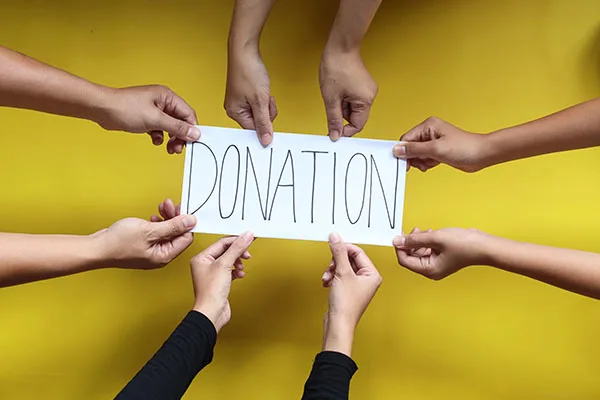
Take A Hike Foundation: We must specialize in building up our portfolio for our donors to get that tailored experience as well.
I like how you put that. Previously, you were talking about the intentionality of the program. Again, that’s being reflected in the team growth here, fundamentally going from, you might be a 25-year-old startup in some ways, but you’ve got that opportunity now, to be specific. Have specialists in your field in the philanthropy program to build on the success that you’ve had already and exponentially grow. Maybe exponentially is the wrong word, but take advantage of the opportunities that you have.
Exactly. I also love that we talked about exponentiality a lot.
Which can sound daunting, but it’s intentional, thoughtful growth. It’s not without strategy. Anybody who is reading can read that you’ve got a commitment to data as well. You’re a new database person. You know your numbers. It’s not being done willy-nilly or just arbitrary numbers fundamentally when it gets down to it. In that context, tell me a bit more specifically about what this director is going to be doing. What are you expecting of them? What do you hope for them to do?
We want to build an intentional strategy and program for this special group of donors. Re-inspire some people who’ve been with us for the last 25 years but may not have had too much contact. Working with our annual program lead, what is the journey that these people need to experience? How should they understand the organization as they move through their philanthropic relationship with us?
We know that we need to start talking about plan giving in a more intentional way with our donors. Also, I am very aware that that’s a long-term horizon. We spoke earlier about this, Chris, but our donors are not. I don’t want to say old because they’re around my age, but they’re younger than maybe an organization.
They’re youthful, how about that?
Yes, youthful. Similar to building a small team, focusing on the experience of our donors, and then growing that team year over year as the organization grows.
Of course, working very collaboratively with you and with your CEO. I understand you’ve got a fundraising committee on the board as well. This person’s going to be a director partnering across the organization and building those connections, but fundamentally focusing on donor engagement first and foremost.
Sitting on that leadership team and helping with the decision-making as we grow.
What are some markers of success for this person? This is a question my colleague Doug loves to ask. How would the director earn a gold star on your team?
Connecting with the long-term loyal donors we have. In this portfolio, a lot of them have been with us for 25 years. Maybe they aren’t as in communication or are aware of all the changes that have happened in that time. Getting a better understanding of their story and why they still connect with Take A Hike and our youth.
Also, Gold Star would embrace the values of the organization and the very foundational work we do with the youth, our team, and our donors, as well as lead a team with that as the focus. Very much supporting us in our strategy for growth, specifically around individuals in BC, but as we look to grow nationally.
I know that’s part of your plan as well. The one thing I might add is that as it’s a little bit of prospecting, some qualification of new donors, making sure that pipeline is growing for the future because you do want to be taking that long-term view fundamentally as well. Why would someone want to leave their job and come join you? What are some compelling reasons for someone to join Take a Hike at this point in their lives and career?
Other than we’re amazing and super fun to hang out with.
Clearly, Yes.
A board member said this to us and it resonated with me, “Looking towards what we’re hoping for the future and our goals to achieve. This organization is at one of its most exciting times, and it will likely be. As staff members, we’re going to learn and grow continuously, probably at the most rapid rate of our careers, and no year is going to feel the same. That we get to come out on the other side of this, building something better for the future.” That got me excited.
You are not a stagnant organization. This is the best possible way. You’re growing some stability, but you’ve got some tremendous change happening and some tremendous opportunity to grow. It is a pivotal point in your growth and development, that’s for sure. That’s exciting.
Also, test. Learn and fail fast and grow. I think the other part that is special about Take a Hike is that we mirror much of what happens in the program; there is such a deep investment in its people, its well-being, and its goals. It shows up every day.
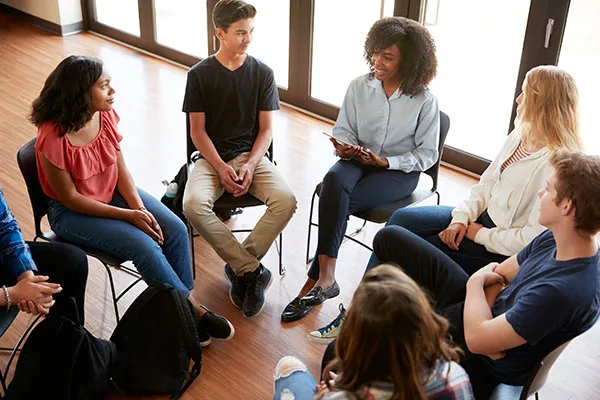
Take A Hike Foundation: Because we mirror much of what happens in the program, there is such a deep investment in its people, its well-being, and its goals. It shows up every day.
The humanity of the organization is important, isn’t it? Treating people well and respecting them, but also focusing on career and career growth and opportunity. That’s awesome. Any final comments or messages for potential candidates? What’s most exciting about the future at Take a Hike that would make someone want to join you?
I think if you’re someone who loves to understand why, maybe you can build something, not maybe from scratch, but take something from being good to be out of this world. Someone who is entrepreneurial and a big pie in the sky in brainstorming. I think this is the job for you.
As you said, you’re awesome. It’s an awesome team. You have a lot of fun. I’m looking forward to working with you, your leadership group, and the rest of your awesome team as we go through the process of the search. I’ll just close by saying if anyone is interested or curious, we certainly welcome questions.
As people can read, I like to ask questions, but I like to take questions as well. It’s a rare and compelling opportunity and I hope people will reach out. I can be reached at [email protected]. You can check out Larissa’s bio. You can check out Take a Hike. We’ve got the position profile and circulation. Excited for this opportunity and excited to bring some exciting director candidates forward.
Yes, thank you. I look forward to meeting anyone else as well.
Excellent. Thank you again, Larissa, and we will talk soon.
Important Links
- Larissa Hayes – LinkedIn
- Take A Hike Foundation
- [email protected]

